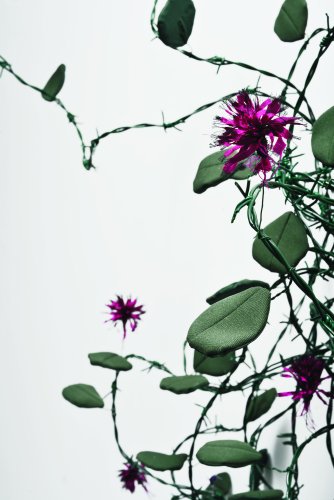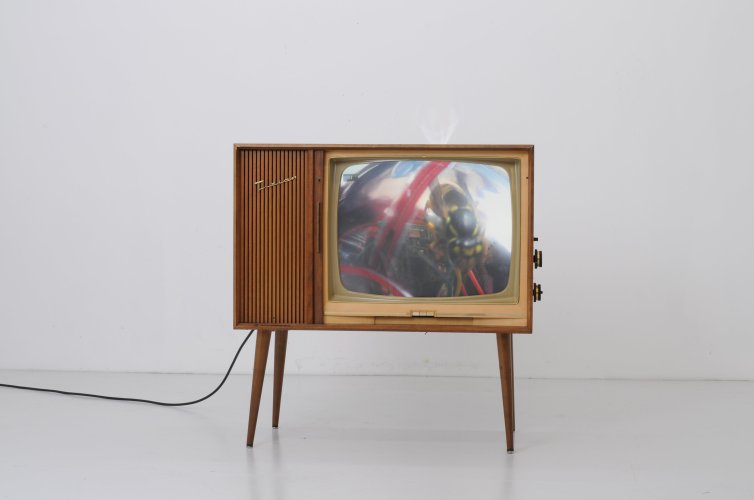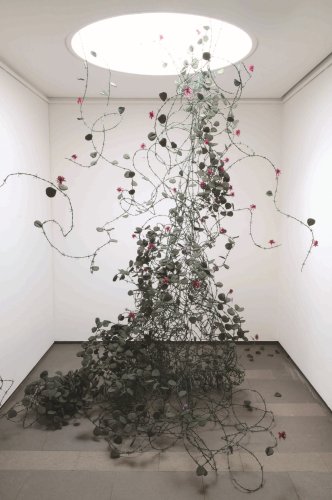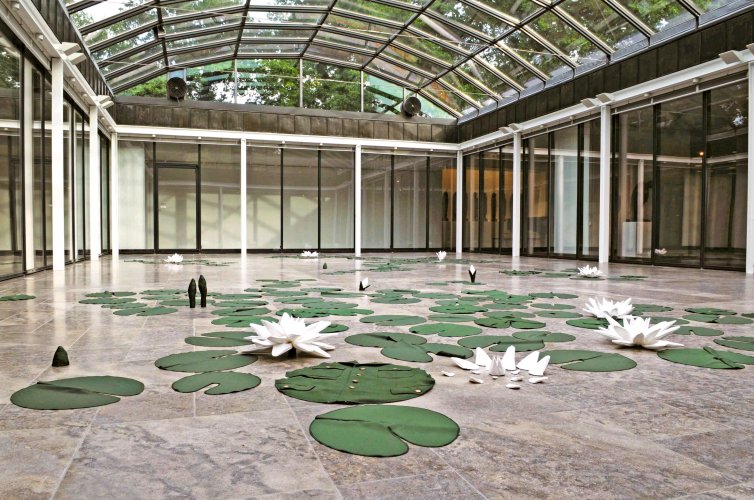Hidden meaning and sabotage
Mirages in oil on canvas, plants made of police uniforms and barbed wire, landscapes on tin cans – since the 1990s Peter Rösel (*1966) has been known for a sensually unsettling art of collision, abeyance and shift of emphasis.
Humorous and cunning, Rösel’s works link stories of everyday life with those of humanity, mix the close at hand with the distant and blend the mundane with the exotic. They also take pleasure in sabotaging worn-out patterns of thinking and seeing; usual materials in strange contexts offer the viewer to tension-filled encounters. In the 1990s Rösel became known to a wider audience with the exhibition series ‘Szenenwechsel’ (Change of Scene) in the MMK Museum für Moderne Kunst, Frankfurt am Main. Since then he has made a name for himself with numerous exhibitions in Germany and abroad.
The Ernst Barlach Haus will now provide an insight into the diverse works created by the Berlin-based sculptor, painter and multimedia artist who teaches at the Weißensee academy of art. Paintings, objects and videos from the last fifteen years will be on show, including the series Ships in Bottles (2004–06), paintings and watercolours from the Fata Morgana Painting Project that he began in 1999, as well as plant ensembles such as the Water-lily Pond (1997) sewn out of uniform jackets and caps, which in a newly adapted form spreads across the courtyard of the Ernst Barlach Haus. In addition to this work, Peter Rösel created the space-filling installation Barbed Hedge especially for his Hamburg show. For the first time he will also present his most recent group of works: television cabinets from the 1950s and 60s – massive furniture with old-master brand names like ‘Tizian’ or ‘Rembrandt’ – display a surprising inner life.
The exhibition is accompanied by a catalogue (108 pages with numerous colour plates, German/English, softcover).




